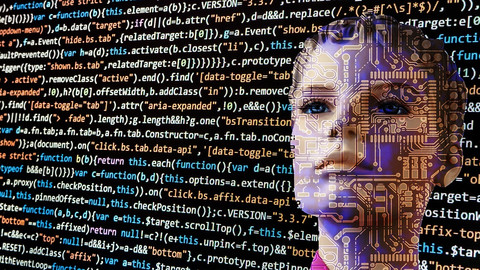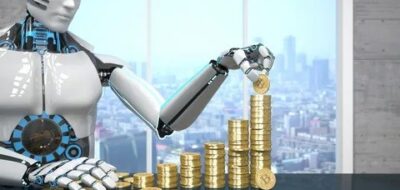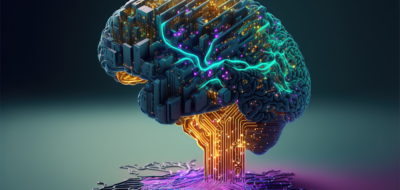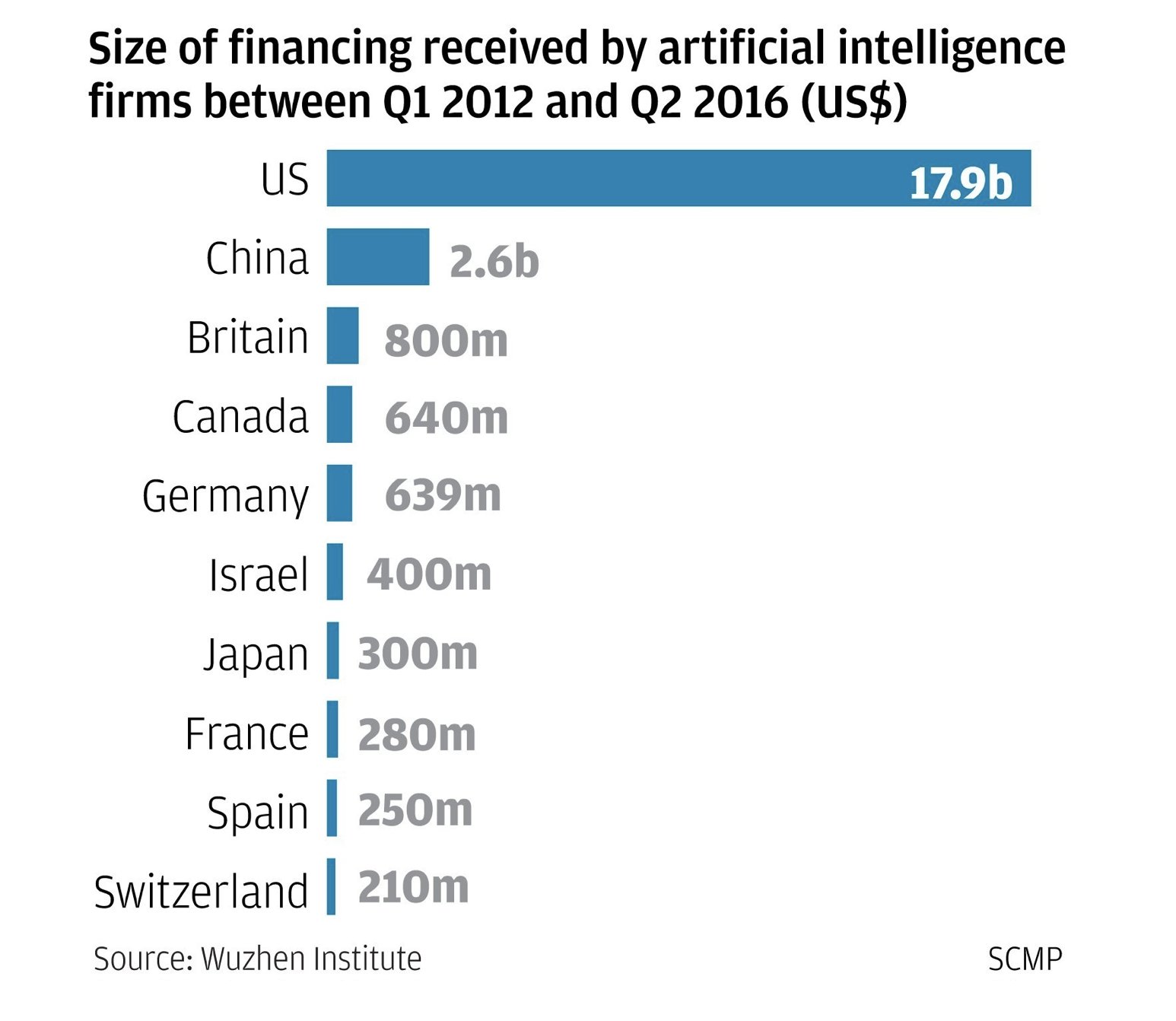My article in BUSINESS INSIDER published 8thof August 2018.
It may be a cliché, but the assertion that everything in business changes kaleidoscopically perfectly describes today’s global economy. While rigid and entrenched business models are rapidly becoming a thing of the past, the potential of artificial intelligence (AI) and automation to change everything has forced contemporary leaders to face a host of new challenges. In the digital age, business leaders must be prepared to reset their habits and views continuously.
Today, one of the key characteristics of the business environment is its plasticity: customer behaviors, data flows, and political and economic conditions are constantly changing and evolving unpredictably. Uncertainty, and its attendant discomforts is the new normal. No managers, business owners or employees can (or should) be confident that what happened yesterday will happen tomorrow, or even that today’s strategy will be appropriate to tomorrow’s conditions. This lack of confidence poses a challenge for business executives and other leaders. What can they do to gain a sense of power over the organizations they manage? How can they regain a fundamental sense of control in an age defined by changeability?
In today’s world, leaders must understand that:
Everything is digital
A mere decade ago, business owners learned about the importance of displaying their products on the internet. They realized that having a well-designed website was essential for capturing the customers who prefer to shop in the comfort of their homes. But this web presence was viewed as an enhancement, an add-on to traditional sales channels. Marketers still relied heavily on tested and proved offline tools, such as surveys and mystery shoppers to identify customer needs.
No more. Technology is no longer an accessory. Every business is a digital business. Big data, cloud computing, social media, mobile apps and automated marketing have taken over. They are all deployed to conduct a variety of transactions and make purchases. The line between the offline and online worlds has blurred, if not vanished entirely. Anyone who aspires to run an organization must realize and accept this as a fact of life. Only then will they be able to build credibility in the eyes of their co-workers, customers and competitors.
In Poland, few managers and CEOs today inherited companies that were technologically advanced. Local enterprises, set up a dozen or so years ago, had to undergo profound overhauls to be able to compete successfully with global players that employ the latest management methods. Companies like Amazon, Facebook, Google, and Uber were born digital, never used conventional tools, and these and similar digital natives have been setting the new industry standards; other businesses have had to measure themselves against the benchmarks they have established. As a result, leaders developing new business strategies need to bear in mind that the technology departments they task with building and supporting digital processes across their organizations will define their success (or their lack of it). Accordingly, business leaders must include technology experts when making key decisions, as they are the people most knowledgeable about the latest tools and how they are used globally. Today’s leaders need to understand that although technology exploration may be resource-intensive, neither competitiveness nor growth can be achieved without them.
They must watch the customer
The founder of the global shopping platform Alibaba.com has said, “We put customers first, employees second, and shareholders only third.”
That’s the way it has to be. Today’s customers are merciless, unforgiving, and empowered to express and act on their displeasure. They have no tolerance for slip-ups, slow service or outdated product ranges. They do not care to know that the procedures required to satisfy their needs take a great deal of time, effort and money to put in place. Once a new shopping model appears that allows customers to place their orders, pay and get their product within minutes, that model is demanded, unconditionally. Providers cannot negotiate those terms. Customers raised on global online stores rather than shopping malls vote for that model with their wallets.
What lessons can the modern leader learn from this? No matter how good and convincing your ideas may be, and how much money you have invested in developing your business, you are bound to fail unless you accept that the customer is the primum mobile, the center of the business universe, the alpha and omega. Therefore, one of the guiding principles of public relations to which modern leaders should adhere is to cater humbly and happily to any customer expectations. This is especially true when it comes to acquiring the new customers every business needs to grow. As Amazon founder Jeff Bezos has said: “If your customer base is aging with you, then eventually you are going to become obsolete or irrelevant. You need to be constantly figuring out who your new customers are and what you are doing to stay forever young.”
Read more in the full article.
Link to the full article (in Polish)
Related articles
– Blockchain poised to shake up our lives
– Will quantum computers doom the blockchain?
– Machine Learning. Computers coming of age
– Blockchain – the ultimate financial crash
– Blockchain – the Holy Grail of the financial system?
– What is blockchain? All you need to know
– Blockchain has a potential to upend the key pillars of our society










Adam
Nice article, very insightful. I also agree with the point that the combination of both, human intelligence and artificial intelligence is the best for the future. AI is already better than human intelligence when we are talking about routine and repetitive tasks, but we still need a human to see a bigger picture. And this will probably continue for a long time.
Tom Jonezz
A self-learning neural network can’t really be reviewed by humans
Oscar P
No matter how great you could ever construct any algorithm or how impervious you might build a tool to wield your altogether flawless algorithm even with some purposefully double-blind mechanisms to offer unfettered constraint where may be applicable; even in that, there are always a nubmer of separate variables required to compute anything therefore, even if for this example in your article, the social wisdom or intellectual value of the algorithm was 100,000,000,000 (100 Billion) times the value of anything it judged/digested to social interpretation to achieve a better more balanced.
Acula
We have a hard time make AI more intelligent that say, a worm. This is because expanding resources available to AI (a trick that worked for regular computers) tends to make AI more stupid rather than more intelligent as having such capability it tends to memorize instead of generalizing. Hence creating complicated AI systems capable of thought seems to be well ahead of us. The future is just an illusion in physics. This is just one possible way of ordering events. And not particularly remarkable one – outside of the way ur mind operates – that we can remember the past but cannot remember the future.
CaffD
He is part of the problem on that committee. Let’s look at his so called obvious red lines.
The use of lethal autonomous weapon systems was an obvious item on our list,
The idea that you can prevent this with any kind of rule is laughably naive. If those systems are more efficient than alternatives, then they will be created. Not having them will only mean your enemies win.
as was the AI-supported assessment of citizens by the state (social scoring)
Very dubious line. I could well argue that such things are better left to AI than to humans. Argue against social scoring if you will, but attacking the tools is like blaming the hammer for hitting a nail.
and, in principle, the use of AIs that people can no longer understand and control.
Which people? The extremely limited subset of people who now are possibly capable of making that claim? One might argue we’ve passed that point. The world is already so vastly interconnected with automated systems that any claim of being able to understand it should be taken with a barrel of salt.
With such immensely unrealistic beliefs, he has no place in the policy making world. Except the one he seems to occupy, as a way to pacify people like him without making any real commitment.
PiotrPawlow
Actually machine learning will change humanity like the wheel and fire did. This is what I think. Humanity is about to get a very sharp tech tool in our arsenal
Norbert Biedrzycki
In 2019, AI will expand to cover new dimensions such as media, healthcare, retail, manufacturing, communication, research – in fact, almost every area of modern life has the potential to be influenced by AI applications.
John Accural
Norbert nice little note here. I’d love to publish it! Add some nice 60 minutes clips of AI and such
Tom299
Great read BTW
Norbert Biedrzycki
If Europe develops and diffuses AI according to its current assets and digital position, it could add some €2.7 trillion, or 20 percent, to its combined economy output, resulting in 1.4 percent compound annual growth through 2030
John Accural
Norbert, I have a real challenge with the label of “Artificial Intelligence”. AI is not one until it becomes self-aware (sentient). Until that time comes, saying AI is in my opinion more of a marketing term than anything else. At this time, I prefer to define it as a set of technologies which is able to aggregate data and present it in a way to facilitate the process of decision making. To allow for fully autonomous weapons to take action on decisions which are made based on weighed statistical data analysis and normalization is akin to playing a “smarter” version of Russian Roulette. Even if we ever reach a level where machines are self-aware, they should always be nothing more than tools aiding the decision making process of humans – people in this case who are tasked with “pressing the button” to either launch or defer the launch of a weapon. Some of the greatest battles and resistance wars – from the Battle of Thermopylae, to the partisan resistance in various countries occupied by the nazis in WWII had no “statistical” business of being fought – yet people did and people defeated enemies with far superior resources. Sometimes the best decisions are made based on “gut feel”, not computational analysis.
Tom Jonezz
Western companies are far ahead in AI. There is no Chinese company that would be even barely close to google in terms of image recognition or voice recognition. Every single day I hear about China being far ahead in AI than anybody else but I can never see any source that would suggest that China has advanced form of modern neural network design noone else has. Because they do not.
If you opened the article then you would know that China is not threat because they would be ahead in technology. They are threat because of how they use technology in their surveillance state control and there are serious concerns that such practice could spread to our countries.
Tom299
Robots are/will be better in most of the manual work where the only asset needed is human physical body, human sensors (eyes, ears) and just a little of intelligence to make quite simple decisions. So, we are out 🙁
Zoeba Jones
Customer service is extremely important — that, I agree with. But the horse and buggy dealer could have known every person’s name back in 1915, but eventually they were all going to buy a car. I’ve got to go now and find my Palm Pilot.
TomCat
Don’t forget: sadly not having a level playing field in terms of (f.e.) taxes, labour laws, salaries and user-data-usage was one of the most important drivers of the tremendous success of these companies.
Piotr
For many on-demand platforms, algorithmic management has completely replaced the decision-making roles previously occupied by shift supervisors, foremen and middle- to upper- level management. Uber actually refers to its algorithms as “decision engines”. These “decision engines” track, log and crunch millions of metrics every day, from ride frequency to the harshness with which individual drivers brake. It then uses these analytics to deliver gamified prompts perfectly matched to drivers’ data profiles.
Piotr91AA
I hope that thanks to automation people will have more time to spend interacting with AI which will bring potentially infinitely more opportunities for learning and being even more productive.
Norbert Biedrzycki
I personally think machine intelligence is a good term to define what we are ultimately trying to do in terms of utilizing data to improve the business in the three ways the article outlines, but to many people it is a legacy term which just = historical reporting.
John Accural
Even in Star Wars Humans were commanding final strikes … so there might be still hope for all 5 stars generals !
Norbert Biedrzycki
PiotrPawlow
Interesting
Norbert Biedrzycki
Thank you
John McLean
100% absolutely true.
Norbert Biedrzycki
🙂
SimonMcD
Absolutely true Norbert Biedrzycki – In almost all cases listed above, and many others, the companies or industries that tried to avoid change, keep the status quo and manifest their market position or monopoly made room for disruption. Even here in Africa. The Hospitality and Tourism Industry is overdue for disruption but most non-africans don’t even see the opportunity and the existing businesses are happy to keep no longer sustainable business models in place, to the absolute disadvantage of the destination and its business and people. It is high time to change how African destinations do business and gain back control on their visibility and distribution. It is a no-go to further give away 60-80% of the profit to overseas middlemen, not contributing to the destination.
Zoeba Jones
I like the concept, but as a society we need to step up and hold these giants accountable. Can’t be taxpayers’ responsibility to monitor this maze. Airbnb needs to enforce compliance or be fined in the same way a normal hotel would.
Then we have real innovation. I’m sure it would still work, but grow more slowly, and we would avoid a race to the bottom in safety/labour rights/environmental standards/tax compliance and more
Tom299
I have a bad news for you. Robots are/will be better in most of the manual work where the only asset needed is human physical body, human sensors (eyes, ears) and just a little of intelligence to make quite simple decisions. It is a very natural thing to just let things be done by the one who does that (much) better.
Tom Jonezz
While the algorithm may not see bias in the way people see bias, because of the inherently flawed dataset where all people will develop at slightly different rates and their experiences, even those of equal social force/value, will cause varying impressions which may cause differing effects; any algorithmic mechanisms applied will observe and apply a simple value to each circumstance without the understanding to know which evolutionary processes have or have not been impressioned upon.
Zidan78
Communication is key, as well as listening to and respecting employee questions and concerns towards AI input. Some of these issues may come from legitimate insights about the proposed AI/ML applications , whereas others can grow out of a natural resistance to change. Once you choose a system/algorithm to adopt, there will also inevitably be some fine tuning.
Norbert Biedrzycki
Thank you. Very correct
Tom Jonezz
Where evolution gave wolves a fierce set of teeth and the cheetahs unmatched speeds, evolution gave humanity the most sophisticated intelligence of any animal on the planet and humans have been using that intelligence to overcome their biological deficits.
Jacek Krasko
According to Gartner:
“China and the US will be neck-and-neck for dominance of the global market by 2025. China which will account for 21 % of global AI power, ahead of the US on 20%. However, the US wins in terms of AI revenue (22 % vs 19 %). The third largest market is predicted to be Japan with 7 %”
As regards the number of Industrial AI market:
A new report from GSMA Intelligence forecasts that China is poised to lead the global Industrial AI market and could have as many as 4.1bn of the 13.8bn global AI Reve estimated to exist by 2025.
PiotrPawlow
The most essential thing that our society must do as these technologies advance is to have an open conversation about where we want humanity to go as a species. These technologies are being rapidly developed with no signs of slowing down, so it is up to us to decide how far down this road we want transhumanism to go. Unless we do, the transhuman future we will get may not necessarily be the one that we want.
Norbert Biedrzycki
I agree they are mostly fancy buzzwords for good use of data. I think the three outcomes are academic in nature, and not reflective of the real world. The three outcomes I see in business are:
– Data showing positive results is used to explain how brilliant the team is and justify raises, incremental resources, etc.
– Data showing negative results is explained away as being due to uncontrollable factors.
– Data (positive or negative) is used inappropriately to justify internal political battles for more resources, more responsibility, or other power struggles.
AndrewJo
The vision of a quantum internet is to fundamentally enhance internet technology by enabling quantum communication between any two points on Earth. Such a quantum internet may operate in parallel to the internet that we have today and connect quantum processors in order to achieve capabilities that are provably impossible by using only classical means. Here, we propose stages of development toward a full-blown quantum internet and highlight experimental and theoretical progress needed to attain them.
Mac McFisher
Thanks for sharing. AI is disrupting the market and changing the way we do business. There are solid use cases across industry segments of improving customer experience using AI.
John Accural
Chatbots are AI-based automated live chat systems that can simulate human conversations without human intervention. Chatbots function by identifying the emotion and context of the text written by the customer and respond with the most appropriate reply. Chatbots also collect masses of data on user behavior and habits, which they learn to adapt to future customer inquiries, including being able to better gauge customers’ moods.
CaffD
I don’t know where this idea that “AI is neutral” came from, but I really wish it would die already. AI is created by humans, uses human tools (like human language) to function, and is taught by humans using datasets created by humans. AI isn’t like a hammer, the two things couldn’t be more different. It’s a false equivalence.
It’s an understood fact by most computer scientists that algorithms have bias, in fact, it’s a large part of what researchers in the field of AI spend their time trying to combat, and it’s not a simple problem. There’s a lot of philosophy, data science, social science, and mathematics wrapped up in this problem. Here’s a good article explaining some of the issues surrounding bias in algorithms, and how complex of a problem it really is.
Norbert Biedrzycki
Financing received by AI firms between Q1 2012 – Q2 2016
Adam Spikey
Norbert, an enjoyable read, thank you.
Your explanations are clear, however we often find ourselves in an elevator/lift to explain the differences. Do you have thoughts on a short pithy statement to position each that people would repeat ideally albeit subjective based on application scenario :). ?
Zidan78
As new ideas are adopted and implemented, they reach a stage of stability and legitimacy. Employees get used to practices that initially seemed unfamiliar and AI begins to reap the benefit of the shifts that have been made. It is important to recognize and reward the contributions that your staff make as they adopt new practices, and as they learn and grow.
Norbert Biedrzycki
The point I was making is that change management is useless when run by a people who a) don’t know much about technology and b) try to jam us up with red tape because it makes them look useful in their own minds. I don’t object to change management, I object to broken change management limitations.
Karel Doomm2
We are not in a position to determine what is a human in the future. I think it is fascinating that we can press the boundaries of what science will allow scientists to build. without any regard what this means to humanity and the real life consequences. The danger of this recipe at hand is the following: 1) scientists/technologists have been given free reign on defining the future of humanity; 2) companies that do not want to be regulated writing papers to influence politicians that are unaware of steering policy. I think if you put some of these scientists/technologists/politicians in a room with Mohammed, Jesus, Moses, Buddha, and other religious leaders they may leave the room thinking differently.
TommyG
The majority of the great blue chip companies were built this way: IBM, U.S. Steel, General Electric, Walmart, and Ford are just some examples. But today’s business reality is very different. We live in a world of bytes – and for the first time technology and commerce have collided in a way that makes data far more valuable than physical, tangible objects.
TomHarber
Can we count on freedom in action or rather on subordination to someone or something?
But more important seems to be whether transparency of information may affect the election of those who will manage them.
TonyHor
Hi Norbert, Computer says no! I wonder some days is it just me “What is going on”? There is no question robots will help us if we govern a process. However,we should not lose human collaboration. Plus, I doubt I can joke around with my robot boss. I would rather report to a chicken at work. https://www.youtube.com/watch?v=jsLUidiYm0w
TomHarber
Nice feed
JohnE3
… and again interesting topic yet again not in an language I understand